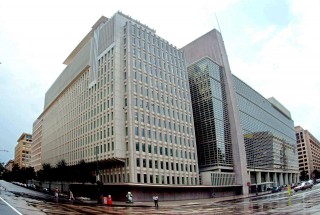Transport connectivity is a common challenge across key regions in Madagascar. Not just that, poor road networks in the country’s rural areas have led to a decline in agricultural returns.
In solving this challenge, the World Bank is supporting Madagascar with the sum of $140 million, to enhance transport connectivity in selected rural areas, while improving access to social and economic opportunities in the region.
This project focuses on enhancing road connectivity in priority regions of Alaotra Mangoro, Anosy, and Atsimo-Atsinanana. Through climate-resilient interventions on secondary, provincial, and communal road networks as well as promoting digital solutions for rural development and transport services.
The Connectivity for Rural Livelihood Improvement Project will reform 148 km of secondary roads including 113 km section of the RNS 44, which is the only connection between the rice basin of Ambatondrazaka and the main trunk network in the Alaotra Mangoro region. Also, 35 km of RNS12A, the only road that provides access to the poorest districts in the country located in the regions of Anosy and Atsimo-Atsinanana will be reconstructed.
More so, the Manambondro bridge on RNS12A will be built to replace the existing ferry crossing, with 500 km of provincial and communal roads in Anosy, Atsimo Atsinanana and Alaotra Mangoro regions will also be improved.
Majority of Madagascar’s impoverished people live in the countryside and practise subsistence farming, with about 50 to 90 percent of total household income generated from agriculture. However, the poor state of the roads makes it hard for farmers to reach commercial centres to buy farm inputs and sell their products. About 6,000 kilometers of roads are paved in Madagascar, compared to the country’s total road of nearly 37,500kilometers. Without good roads, people become cut off from the markets, schools and medical centers.
Rural livelihood is severely constrained by the lack of affordable transport services linking populations to economic opportunities and human capital services
However, the reformation and improvement of these roads will reduce travel costs, increase accessibility to basic social services and create economic opportunities for thousands.
In addition to transportation, the project also aims at supporting the emergence of a digital innovation ecosystem. The digital innovative ecosystem will provide local content, applications, and services for rural development in the areas targeted by the project.
With the help of mobile phones and the deployment of Community Information Kiosks, farmers and enterprises in the targeted areas will receive relevant close-to-real-time agro-climatic data and forecasts. They will also have access to climate data, market pricing and commodity futures trading information, as well as local and regional market information.
“The aim is to take advantage of the development of digital technologies to maximize the impact of the rehabilitation of those roads in improving rural connectivity and livelihoods. With hopes that this innovative approach will be emulated as the country is rolling out its investment in the transport sector, ” said Marie-Chantal Uwanyiligira, World Bank Country Manager for Madagascar.
Improving road connectivity in Madagascar will enable rural communities to have access to social and economic opportunities, thereby bridging the gap between the rich and the poor.
By Faith Ikade.








